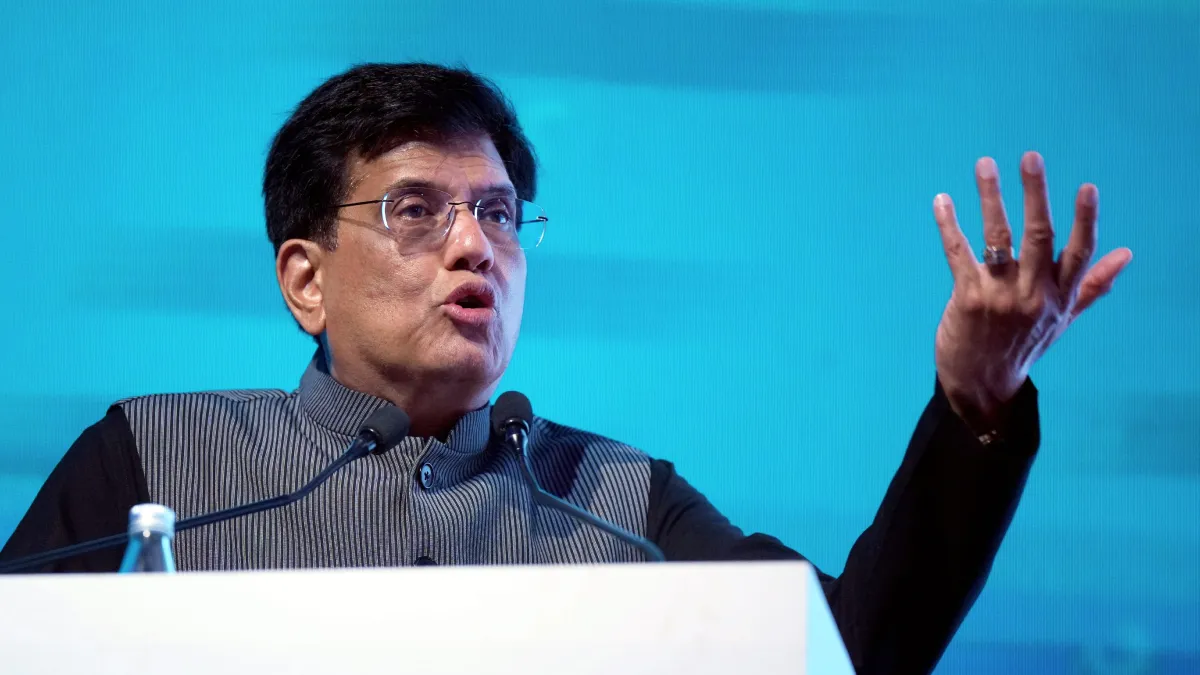Tech Over Transactions: Aim for AI, Not Ice Cream
Union Commerce Minister Piyush Goyal urges Indian startups to shift focus from basic services to cutting-edge technologies like AI, robotics, and semiconductors, while highlighting the need for Indian investors.
At the Startup Mahakumbh, Union Commerce Minister Piyush Goyal asked founders to go beyond grocery deliveries and focus on high-tech sectors. According to him, India’s destiny cannot be limited to building ice cream or delivery apps.
“Are we going to be happy being delivery boys and girls?” Goyal questioned. He encouraged startups to explore areas like semiconductors, robotics, machine learning, 3D manufacturing, and artificial intelligence.
This isn’t just a wake-up call—it’s a challenge to reimagine India’s tech future.
A Stark Comparison with China’s Tech Ambitions
Goyal drew a comparison with China, which is pouring massive investments into next-gen tech. Chinese startups are building smart factories, AI-powered platforms, and advanced robotics. Their ecosystem, although state-backed, is driven by bold innovation and global ambition.
Meanwhile, many Indian startups remain stuck in low-risk sectors. While services like food delivery or transport apps have value, they don’t push the country forward technologically.
India’s Own Tech Wins — Government-backed Initiatives
Despite the criticism, India has seen remarkable success in certain tech areas, thanks to government support.
UPI: A Fintech Revolution
The Unified Payments Interface (UPI) has transformed how Indians pay. As of January 2025, UPI recorded over 16.99 billion transactions in a single month, with a total value exceeding ₹23.48 lakh crore, marking the highest number recorded in any month. This seamless payment system has made digital transactions accessible to millions, including small vendors and rural users.
Digi Yatra: A Smart Travel Leap
With Digi Yatra, airports have adopted facial recognition technology, making travel smoother and more secure. Launched in December 2022, the platform has achieved over 10 million downloads and facilitated more than 45 million seamless journeys across 24 airports in India. Digi Yatra plans to support all 22 official Indian languages by March 2025, ensuring inclusivity for travelers nationwide.
ONDC: India’s Answer to Amazon
The Open Network for Digital Commerce (ONDC) aims to democratize e-commerce by enabling small businesses to sell online without hefty commissions. As of March 2025, ONDC has surpassed 200 million transactions, with the last 100 million occurring in just six months, indicating rapid adoption. This initiative is poised to unlock India’s e-commerce potential, especially as internet penetration is expected to reach over 900 million users in 2025.
These innovations prove that with the right vision, India can build tech that changes lives.
New Hope: Sahkar Taxi Brings a Driver-First Model
One of the most exciting developments is the upcoming ‘Sahkar Taxi’ platform. It is a cooperative-based ride-hailing service aimed at helping drivers earn better. Unlike traditional models, no intermediary will take a cut from the driver’s income.
The initiative will allow registration of two-wheelers, taxis, autos, and cars under cooperative societies. It’s being seen as an ethical and inclusive answer to platforms like Ola and Uber. This reflects the government’s push to create homegrown, people-centric platforms.
Investors Must Step In — Not Just the Government
While the government is building the runway, Indian investors must now fuel the take-off. Goyal noted the need for domestic capital to flow into deep tech startups. Currently, many Indian ventures rely heavily on foreign investment, especially in high-tech.
This can limit India’s ability to shape the global tech narrative on its own terms.
Why This Matters?
India is at a crossroads. It has the talent and market size to lead in deep tech, but the mindset must evolve. Startup founders, investors, and policymakers must now work together to move beyond comfort zones.
If India continues to build only what’s “safe,” it risks becoming a service provider for countries doing the real innovation. Goyal’s message is timely and vital — it’s a call for courage, ambition, and long-term thinking.
Our Two Cents
This push for innovation isn’t just about prestige. It’s about preparing India for the future of jobs, manufacturing, and digital dominance. As automation and AI take over routine tasks, India must innovate or risk falling behind.
Countries like China are investing billions in research, AI, and robotics. Their startups are targeting space tech, biotechnology, and green energy. If India wants to compete globally, it must shift gears now.
Piyush Goyal’s speech isn’t a dismissal of existing startups — it is a challenge. A challenge to think bigger, bolder, and beyond the ordinary. The tools, support, and talent exist, what’s needed is vision.









Leave a Reply